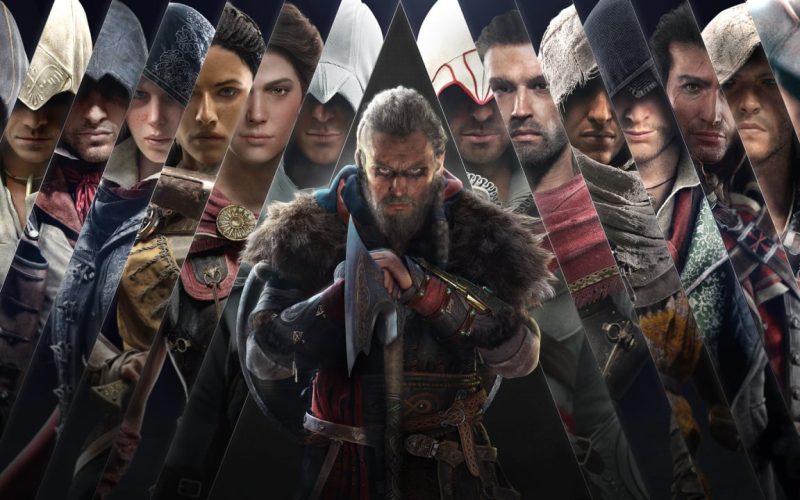Introduction
The landscape of entertainment is evolving at a rapid pace, and one of the most intriguing trends is the expansion of gaming franchises into TV. This phenomenon is not only a testament to the growing influence of video games but also a reflection of the increasing demand for diverse and immersive storytelling. In this article, we will delve into what fans can expect from their favorite gaming franchises TV as they make the leap to television, examining storylines, characters, production quality, and the potential impact on both the gaming and TV industries.
The Rise of Gaming Franchises in TV

-
A Historical Perspective
The convergence of gaming and television is not entirely new. Early attempts, such as the animated series “Super Mario Bros. Super Show!” in the late 1980s, laid the groundwork for future adaptations. However, these early efforts often struggled with limited budgets and a lack of fidelity to the source material.
-
The Modern Era
In recent years, we have witnessed a significant shift. High-profile adaptations like “The Witcher” on Netflix and “Castle Viana” have set new standards for quality and storytelling. These successes have paved the way for more gaming franchises to venture into the world of TV.
The Role of Streaming Platforms in Gaming TV Adaptations
Streaming platforms have played a pivotal role in the rise of gaming franchises on television. Companies like Netflix, Amazon Prime, and HBO Max have recognized the immense potential of video game adaptations and have been actively investing in these projects. Unlike traditional TV networks, streaming platforms offer greater creative freedom, allowing producers to explore complex storylines without the constraints of commercial breaks or rigid episode lengths. This flexibility has been instrumental in delivering high-quality adaptations, enabling deeper world-building and character development, as seen in shows like “The Witcher” and “Castlevania.”
Moreover, the global reach of streaming services has allowed Gaming Franchises TV to tap into international audiences, expanding their fanbases beyond the gaming community. Streaming platforms can localize content with subtitles and dubbing, making these adaptations more accessible and appealing to viewers worldwide.
What to Expect from Gaming Franchises on TV

-
Faithful Adaptations
One of the primary concerns for fans is whether TV adaptations will stay true to the source material. Modern adaptations are increasingly prioritizing fidelity, with creators working closely with game developers to ensure that the essence of the games is preserved. Expect to see familiar storylines, characters, and settings brought to life with meticulous attention to detail.
-
Expanded Universes
Television offers the unique opportunity to expand upon the lore and universe of a gaming franchise. While games are often limited by playtime and gameplay mechanics, TV series can delve deeper into character backstories, explore side quests, and introduce new plotlines. This expansion can enrich the overall narrative and provide fans with a more comprehensive understanding of the game world.
-
High Production Values
Gone are the days of low-budget adaptations. With the success of series like “The Witcher,” production studios are investing significant resources into gaming franchise adaptations. Expect high production values, including impressive special effects, detailed set designs, and top-notch cinematography. The goal is to create a visual experience that rivals the immersive quality of the games themselves.
-
Star-Studded Casts
To attract a wider audience, many gaming franchise TV adaptations are casting well-known actors in key roles. This trend not only brings star power to the series but also ensures that the characters are portrayed with depth and nuance. Fans can look forward to seeing their favorite characters brought to life by talented actors who understand and respect the source material.
-
Diverse Storytelling
One of the strengths of video games is their ability to tell diverse and inclusive stories. TV adaptations are embracing this diversity, ensuring that a wide range of voices and perspectives are represented. This commitment to inclusivity not only reflects the gaming community but also resonates with a broader audience.
Expanding Gaming Universes Through TV Spin-Offs
One of the exciting prospects of gaming franchises expanding into TV is the opportunity to explore spin-offs and side stories that go beyond the main game. Video games often create vast universes filled with lore, side characters, and untold stories that don’t always fit within the main narrative arc of the game. Television, with its episodic structure, provides the perfect medium to delve into these unexplored areas. Spin-offs can give fans a deeper look into a franchise’s backstory, such as the rise of certain factions, character origin stories, or even alternate realities within the game’s universe.
For example, a game like “Assassin’s Creed” has a rich historical tapestry that spans multiple centuries and settings. A TV adaptation could explore lesser-known characters or events in the Assassin-Templar conflict, adding new layers to the franchise’s mythology. This approach not only keeps the main story fresh but also creates new points of entry for audiences who may not have played the game but are intrigued by its world. By expanding the gaming universe through TV, franchises can build stronger connections with their audience, fostering long-term engagement and loyalty across both mediums.
Potential Impact on the Gaming and TV Industries

-
Bridging the Gap
The expansion of gaming franchises into TV is helping to bridge the gap between the gaming and television industries. This convergence is fostering collaboration and innovation, leading to new storytelling techniques and cross-media experiences. As a result, both industries stand to benefit from this symbiotic relationship.
-
Increased Popularity of Gaming Franchises
TV adaptations have the potential to introduce Gaming Franchise TV to new audiences who may not be familiar with the games. This increased exposure can lead to a surge in popularity and sales for the original games as viewers become curious about the source material and decide to explore the gaming experience for themselves.
-
Setting New Standards
The success of high-quality gaming franchise TV adaptations is setting new standards for both industries. As audiences demand more sophisticated and faithful adaptations, creators are being pushed to raise the bar. This trend is likely to result in a continuous improvement in the quality of both video games and TV series.
The Challenge of Adaptation
While the crossover between gaming and TV presents numerous opportunities, it is not without challenges. One of the main obstacles is staying true to the source material while also appealing to a broader audience unfamiliar with the original game.
Maintaining narrative integrity is critical, as gaming fans tend to be deeply invested in the characters and lore. Any deviation from the established storylines can lead to backlash, as seen in earlier unsuccessful adaptations. However, modern adaptations are learning from these past mistakes, with shows like “Arcane” (based on the game “League of Legends”) balancing fan service with storytelling innovation, earning both critical and commercial success.
Another challenge is the technical limitations of television compared to the highly detailed and interactive nature of video games. While video games can offer players a participatory experience, TV shows are passive and require different techniques to keep viewers engaged. The transition from interactive media to a linear format must be handled with care to avoid losing the immersive quality that makes the original games so appealing.
Success Stories: What Works

Despite these challenges, there have been several standout successes in gaming-to-TV adaptations. Shows like “The Witcher,” based on a game that was itself based on a book, have become cultural phenomena, drawing in viewers from across different entertainment sectors. Its success can be attributed to a few key factors:
- Faithful Adaptation: Staying true to the game’s core elements while enriching the narrative for TV audiences.
- High Production Value: Investing in quality production, from CGI to casting, ensures the TV series meets modern expectations of visual entertainment.
- Expanding the Lore: The ability to expand upon the game’s world and characters, offering deeper explorations of backstories, side plots, and untapped areas of the game.
Similarly, “Arcane” has set a new standard for animated video game adaptations. Its unique visual style, compelling storyline, and strong character development have won over not just gamers but also those unfamiliar with “League of Legends.”
What to Expect from Future Adaptations
The future of gaming franchises expanding into TV looks bright, with several high-profile projects in the works. Titles like “God of War,” “Assassin’s Creed,” and “Mass Effect” are all slated for television adaptation, generating excitement within both the gaming and TV industries.
We can expect future adaptations to take a more refined approach with lessons learned from early missteps and successes alike. Here’s what to anticipate:
- Deeper Narrative Engagement: Future TV shows will dive deeper into the lore of the game, offering a more expansive storyline than what’s possible in gameplay alone.
- Crossover Appeal: Adaptations will continue to balance the needs of hardcore gamers with casual viewers who may not be familiar with the source material.
- Innovative Visuals: Expect higher-quality CGI and groundbreaking animation techniques, blending the stylistic elements of the game with cinematic aesthetics.
- Increased Collaboration: Game developers and TV producers will likely collaborate more closely to ensure that the series reflects the heart and soul of the gaming franchise.
Analysis: The Impact on Both Industries
The relationship between gaming and television is mutually beneficial, and both industries stand to gain significantly from this convergence.
| Factor | Gaming Industry Impact | Television Industry Impact |
| Audience Growth | Expands gaming’s reach beyond players to casual viewers | Attracts a dedicated gaming fanbase to television |
| Revenue Streams | Creates new licensing opportunities and merchandise sales | Opens up new revenue from popular Gaming Franchises. |
| Brand Building | Strengthens the franchise’s brand across different media | Bolsters streaming platforms and networks with exclusive content |
| Creative Synergy | Encourages deeper collaboration with Hollywood creatives | Brings new narratives and worlds to TV, diversifying content |
Comparative Analysis: Gaming Franchises TV vs. Film Adaptations
While video game adaptations have found varying degrees of success in both film and television, the TV format seems better suited for certain franchises. Here’s a comparative breakdown:
| Aspect | TV Adaptations | Film Adaptations |
| Narrative Depth | Allows for detailed, episodic storytelling | Limited by time constraints, often sacrificing depth |
| Character Development | Stronger character arcs due to longer run times | Often superficial character treatment to fit within 2 hours |
| Fan Service | More opportunities to explore side plots and Easter eggs | Can only focus on core plot points |
| Viewer Engagement | Continuous engagement with potential for multiple seasons | One-off experience with less long-term viewer retention |
| Visuals & Budget | TV budgets vary, but high-quality CGI is becoming common | Higher-budget films may have more advanced visuals |
Conclusion
The expansion of gaming franchises into TV is an exciting development that promises to bring beloved game worlds to a wider audience. With faithful adaptations, high production values, and diverse storytelling, fans have much to look forward to. As this trend continues, it will undoubtedly have a profound impact on both the gaming and television industries, ushering in a new era of cross-media storytelling. Whether you are a die-hard gamer or a casual viewer, the future of gaming franchise TV adaptations is bright and full of potential.












